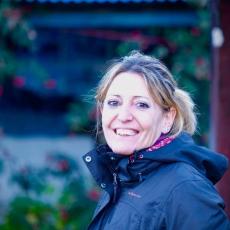Objectives
After passing the exam, the students will acquire the following abilities:
1. identifying and characterizing the potentially non-hazardous and hazardous pollutants in sanitary waste/wastewater produced;
2. identifying suitable treatment processes for the removal of selected contaminants from effluents
3. providing a theoretical description of such processes
Applied knowledge and understanding
After passing the exam, the students will acquire the following abilities:
4. predicting potential adverse effects of contaminants;
5. drawing mass balances for the effluent treatment units,
6. defining the intervention strategy/process layout for sanitary waste/wastewater treatment;
7. deriving, using theoretical models, the removal yield of contaminants for individual treatment units.
After passing the exam, the students will also acquire learning skills, with specific regard to the ability to use suitable methods to make surveys on technical aspects in sanitary engineering at their level of knowledge and understanding. The participation to classroom exercises will contribute to building autonomous learning skills as for the most up-to-date methods, techniques and tools in the field of effluent treatment.
Channels
 RAFFAELLA POMI Teacher profile
RAFFAELLA POMI Teacher profile
Programme
1. Wastewater and water properties:
Physical parameters (Solids, Odors, Temperature, density, color, turbidity, Electrical conductivity)
Chemical [pH, Alcalinity, Oxygen demand (BOD, COD), Nitrogen, Phosphorus, Sulfur, oil and grease, Metals, Dissolved, organic compounds]
Biological parameters.
2. Basic on wastewater treatment plants:
Ideal and real flux reactors. Water supply; Statistical analysis of flowrates, concentration and pollutant load; units for WWT.
3. Basic on drinking water production:
Treatment processes and schemes.
4. Water supply and wastewater treatment in healthcare facilities.
5. Characterization and managment of hospital wastes:
Hospital waste properties and classification; production; statistical analysis of waste production; waste management strategies (collection, transportation, treatment/disposal); waste incineration.
Adopted texts
[1] Piero Sirini, Ingegneria Sanitaria-Ambientale – Principi, teorie e metodi di rappresentazione. Mc Graw Hill, anno 2002 ISBN 88-386-0987-0
[2] Metcalf&Eddy, Ingegneria delle acque reflue, Edizione Italiana, Mc Graw Hill, anno 2006, ISBN 88-386-6188-X
[3] Sirini P., Tchobanoglous G., Noto la Diega R.C., Ingegneria dei Rifiuti Solidi, McGraw-Hill, Milano, anno 2009, 9788838661884
Exam modes
Oral exam and evluation of a project
| Exam reservation date start | Exam reservation date end | Exam date |
|---|---|---|
| 22/10/2021 | 10/01/2022 | 14/01/2022 |
| 22/10/2021 | 10/02/2022 | 16/02/2022 |
| 22/10/2021 | 05/03/2022 | 09/03/2022 |
| 22/10/2021 | 20/06/2022 | 22/06/2022 |
| 22/10/2021 | 08/09/2022 | 13/09/2022 |
| 30/09/2022 | 07/01/2023 | 13/01/2023 |
- Academic year: 2021/2022
- Curriculum: Gestione del sistema sanitario (percorso valido anche ai fini del conseguimento del doppio titolo italo-venezuelano)
- Year: First year
- Semester: First semester
- SSD: ICAR/03
- CFU: 6
- Attività formative affini ed integrative
- Ambito disciplinare: Attività formative affini o integrative
- Lecture (Hours): 60
- CFU: 6
- SSD: ICAR/03
